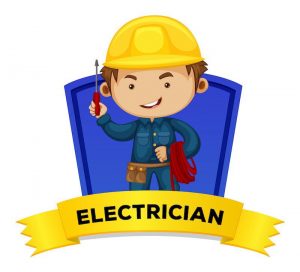RESIDENTIAL ELECTRICIANS
In this article you will learn about:
Certainly! Here's an outline and summary for the article "What Does a Residential Electrician Do?":
I. Introduction
-
Brief overview of the role of residential electricians
II. Installation and Repair Work
-
Installing and repairing outlets, light fixtures, and other electrical components
-
Wiring entire homes and conducting electrical inspections
III. Electrical Troubleshooting
-
Identifying and fixing electrical problems, such as faulty wiring or malfunctioning appliances
IV. Energy Efficiency Consulting
-
Advising homeowners on ways to improve energy efficiency through upgrades to lighting fixtures, insulation, and other devices
V. Safety Considerations
-
Emphasizing the importance of proper installation and maintenance to prevent hazards such as fires and electrocutions
VI. Training and Licensing Requirements
-
Overview of the apprenticeship and licensing process for becoming a residential electrician
VII. Conclusion
-
Recap of the important role that residential electricians play in maintaining safe and functional homes
 When it comes to electricians in Southern MD, there are many different types of specialization available. However, the most common type of electrician is known as a residential electrician. As the name implies, residential electricians primarily work on electrical systems in private homes and apartments throughout Charles, St. Mary's and Calvert Counties.
When it comes to electricians in Southern MD, there are many different types of specialization available. However, the most common type of electrician is known as a residential electrician. As the name implies, residential electricians primarily work on electrical systems in private homes and apartments throughout Charles, St. Mary's and Calvert Counties.
The main responsibility of a residential electrician is to install, repair, and maintain electrical systems in homes in our area. This includes everything from installing outlets and light fixtures, to wiring entire homes and conducting electrical inspections. They are also responsible for troubleshooting electrical problems and ensuring that electrical systems meet local codes and regulations.
In addition to installation and repair work, residential electricians may also be called upon to advise homeowners on how to improve the energy efficiency of their homes. This can involve recommending upgrades to light fixtures, insulation, and other energy-efficient devices throughout each season in our area.
To become a residential electrician, individuals typically need to complete an apprenticeship program and obtain a license from the state of Maryland. This requires many hours of on-the-job training, as well as classroom instruction in electrical theory, safety, and local codes.
Overall, residential electricians play a crucial role in keeping homes safe and functional. They are responsible for ensuring that electrical systems are installed and maintained correctly, which can help to prevent fires, electrocutions, and other hazards. So, if you need electrical work done in your home, it’s important to hire a qualified and experienced residential electrician to get the job done safely and efficiently. And if you’re interested in a career in the electrical industry, becoming a residential electrician can be a rewarding and fulfilling choice.
In Conclusion: Overall, this article provides a thorough overview of the responsibilities and importance of residential electricians. From installing and repairing electrical systems, to troubleshooting and consulting on energy efficiency, these professionals play a crucial role in keeping homes safe and functional. The article also highlights the training and licensing requirements for becoming a residential electrician, emphasizing the importance of proper qualifications when hiring someone for electrical work.
